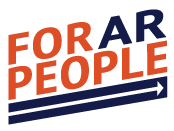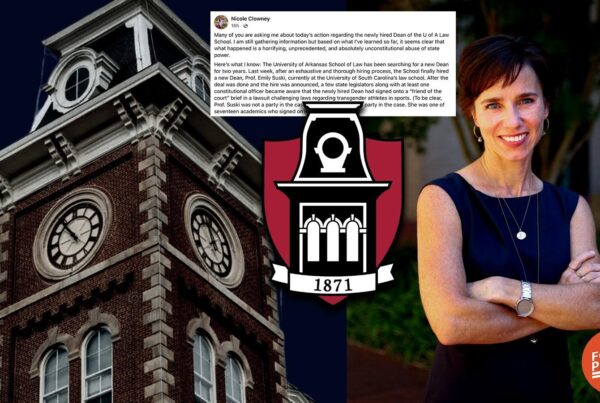Arleg Abuse of Power: A Conversation with Father, Attorney and Activist Chris Attig
Chris Attig is an attorney, former Army Captain and a national leading advocate of veteran’s rights. As the father of a college-aged trans son, Chris also fights for the rights of Arkansas’ trans youth. For AR People’s executive director, Gennie Diaz, spoke with Chris about his experience testifying against an anti-trans bill during Arkansas’ 93rd General Assembly. Below is an edited excerpt from their conversation.
Gennie: Earlier this spring during our legislative session, you spoke against an anti-trans bill that would ban trans youth from receiving gender-affirming medical treatment. Tell us about why you decided to testify against this bill?
Chris: My intent was to speak to my legislators. I wanted them to know that there are consequences to their actions.
Gennie: In committee, public-opposition testimony was limited to 2 minutes a person. You briefly went over the 2 minute allotment, and then the House Public Health Committee chair, Rep. Jack Ladymen, cut off your mic and had Capitol Police arrest you. We’ve never seen anything like this. Tell us about that experience.
Chris: The first person who testified against the bill was a mom who was scared that her child was going to be taken off their hormone blockers and commit suicide. Looking at the faces of those in the committee, I didn’t see human beings looking back at me– I hate to say that because they are human being and deserve dignity, but there was a tone deaf reaction.
When it was my turn to speak, I wanted to let them know what they are doing to parental rights in this state. I remember distinctly the moment when the cuffs went on to my hands. I remember having them behind my back and feeling the cuffs. I was thinking, ‘I can’t believe this is happening.’ I can understand them cutting off the mic, which is reasonable. But putting someone in handcuffs and taking them outside the building? Putting them in the back of a police car and carting them off to the county jail for several hours and charging them with a crime? I’m still struggling to understand what that means. It’s a jarring thought– being handcuffed because you want to talk to your elected leaders.
Take a minute and think about the most important thing in your life today. Now imagine the legislature targeting that.
Gennie: Watching lawmakers’ direct disdain for the people they represent, for them to show a coldness and an indifference to people taking time to share their thoughts with legislators they elected, is abhorrent. These leaders are beholden to the public’s feedback and criticism. And ultimately, the will of their vote.
Chris: It was a shameful moment in our legislature.
My grandfather was a court reporter in the US Senate, and he taught me to see a legislature as a contemplative body brought together to help ensure that our society and our culture progresses forward. That’s what I believe the legislature to be.
Representative Ladyman destroyed that for me. He took my belief that the legislature is a contemplative body thinking about the people, acting for the people, and he turned it into a farce. These lawmakers are acting for themselves.

Gennie: Something I have observed from our lawmakers is a failure to see an individual’s dignity. At the core of their hate is fear of the unknown.
Elected officials exercise their fear and their hatred through power and control, because that’s what they know how to do to maintain the status-quo. Most people, if they pay attention, would notice the disdain our lawmakers have towards public input and to those who oppose their ideas and values.
Chris: They don’t like push back. But as we digitally collectivize our voices and push back in real time, we can engage with our lawmakers directly. They also become more accountable to the public in real time through digital tools. This creates a system of accountability. Their abuses of power and position are incredibly harmful– not only to the individuals who they are neglecting in real time, but to our democratic process.
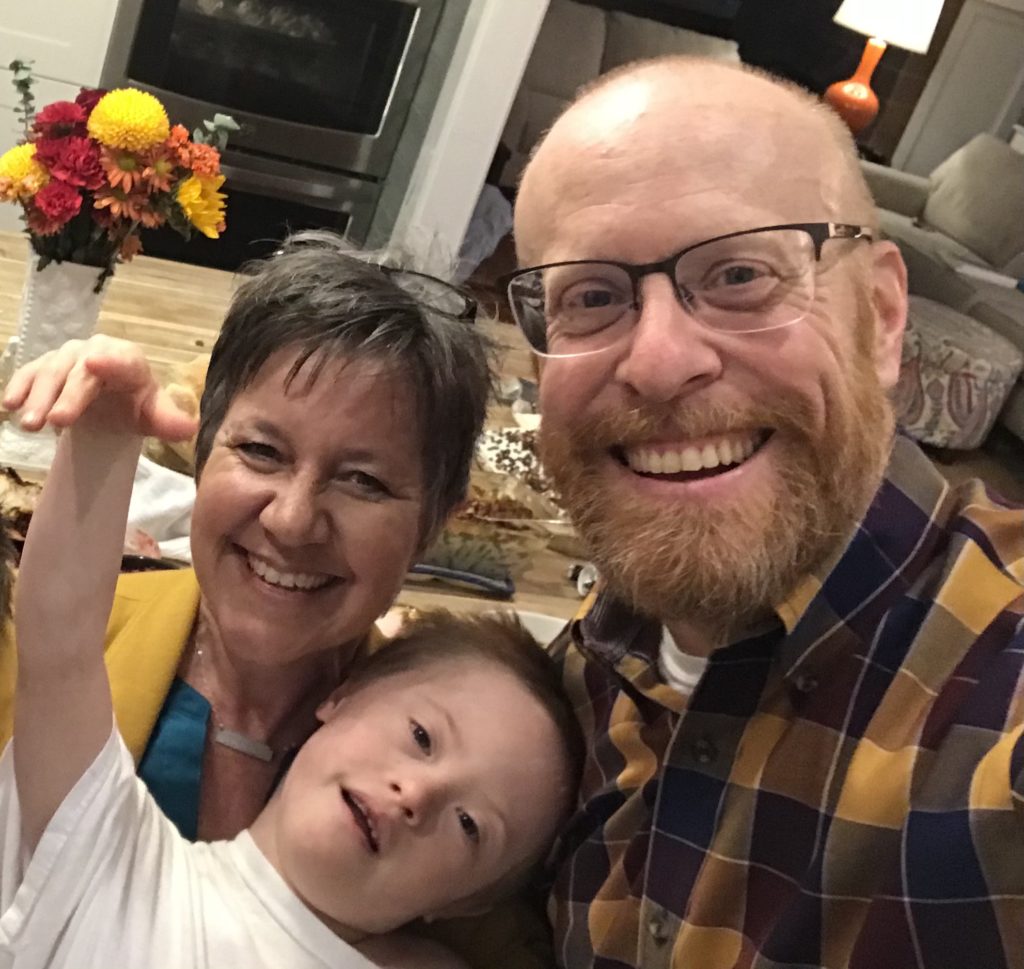
Gennie: What do you think needs to change? What can we do to change the abuse of power and position?
Chris: We all have values: patriotism, nationalism, religion– what drives us on a day to day basis. When we see something we don’t understand, we fall back on those values to help inform us of what to think. The Republican Party I grew up with was one of small government that believed in the autonomy of the family and individual. I could not imagine a Republican from the early 90s supporting a law that says that the government can sit at your kitchen table and can tell you what you can and can’t do for healthcare in your family.
The older generation wants to hold on to that power and is ramping up these political campaigns based on values that are legitimate. But they have taken these values out of proportion to hold on to power, and that results in hate.
The only way to hold legislators accountable is at the voting booth.
Gennie: You’re right that value systems determine how we view the world. Who we elect directly impacts whether or not we see our values displayed in our daily lives, in our communities or our workplaces.
Arkansas, unfortunately, has the largest disengaged electorate in the nation. What if everyday Arkansans knew that their elected leaders are indifferent to their hopes, fears, dreams? I think that would upset a lot of folks. There is honor in being a lawmaker or a public servant, and public servants are beholden to their constituents and to everyone in the state. Your experience really struck a chord with us because it was a real time example of abuse of power and position.
Chris: Take a minute and think about the most important thing in your life today. Now imagine the legislature targeting that. Maybe it’s your kid, maybe it’s schools, maybe it’s your faith, maybe it’s the food you eat, maybe it’s the land you live on that they are targeting.
Imagine what is important to you and going to talk to your legislator– to explain to them how their decision would impact you and people like you. Then they throw handcuffs on you and put you in jail. That’s the thing that is most shocking to me. It’s important we reach out to Arkansans and say, ‘Hey, Republican or Democrat, you don’t want to go to jail for expressing your viewpoint to your legislator.’
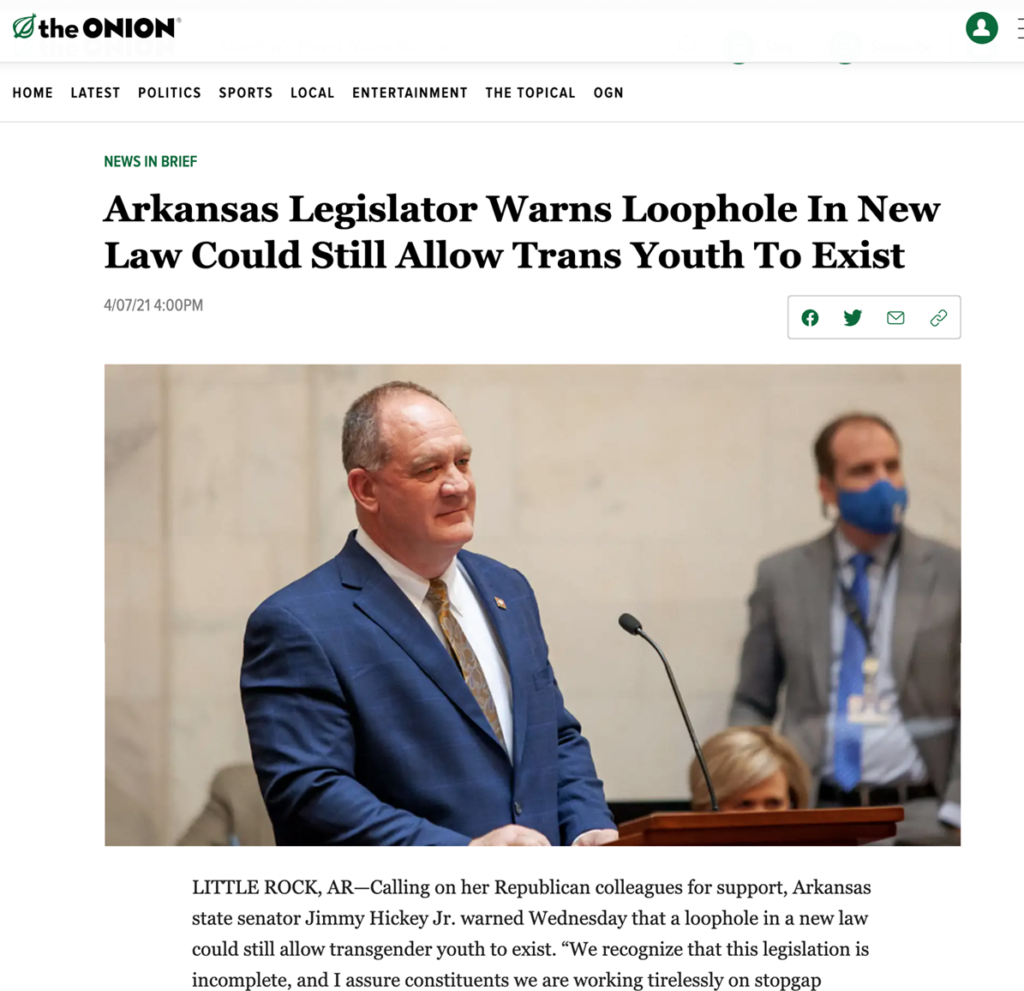
The only way to hold legislators accountable is at the voting booth. I think some Arkansans would be shocked to know what goes on in a legislative session– what folks are doing, how they are making their money, what they are doing in their communities or not doing in their communities. We can let people know it’s okay to speak out.
Gennie: A lot of people have said that lawmakers are proposing solutions in search of a problem and not addressing those struggling to make ends meet, to pay their bills or put food on the table. We need to elect people that can actually solve these problems.
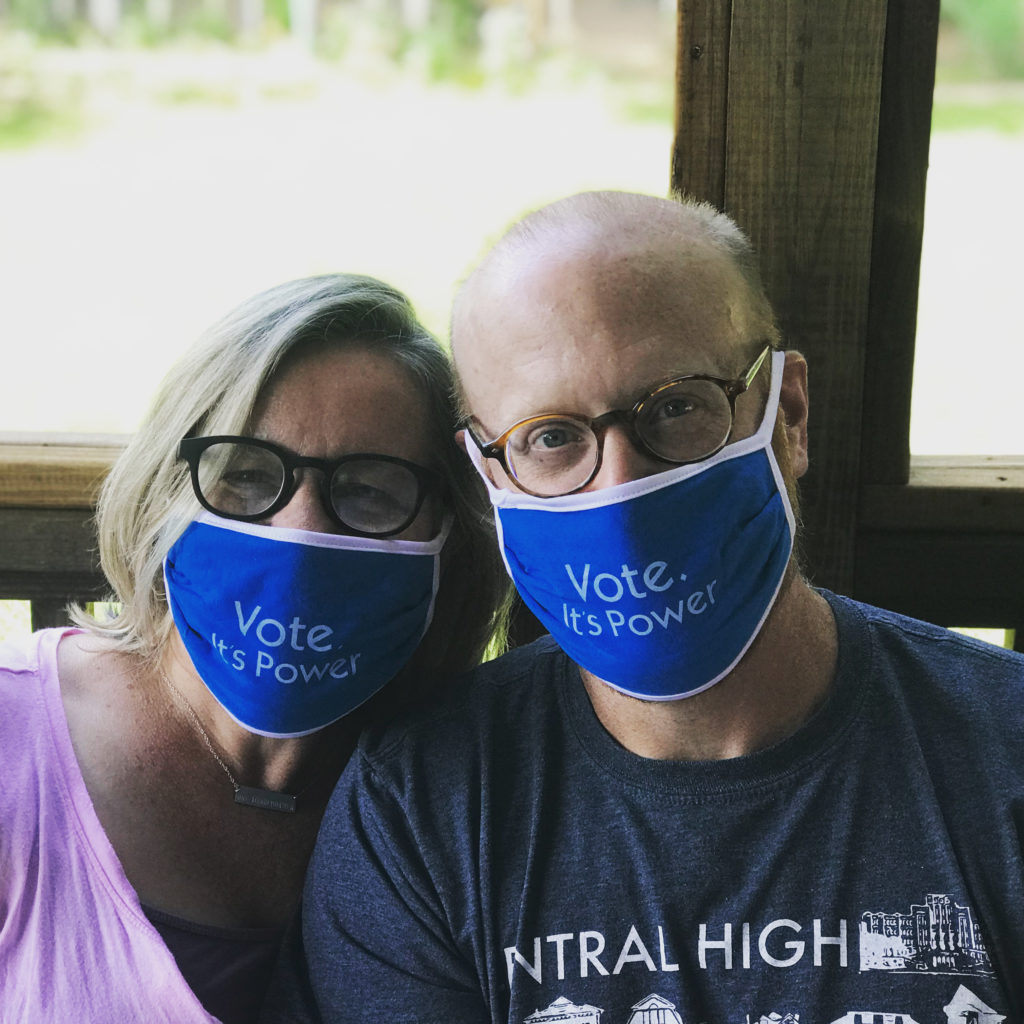
Chris, as we wrap up our conversation, how can our readers learn more about trans rights in Arkansas? How can non-trans people support the trans community in our state?
Chris: We must constantly remind ourselves that transgender rights are human rights. If we focus on human rights, we’re going to take care of everybody.
Go out and meet somebody that is trans. Get to know somebody who is trans, bring them into your circle, understand where they are coming from, seek to understand not judge. From there, if you’re a business owner, adopt policies that allow a more open work place for people who are transgender. Follow groups like InTransitive in Little Rock, the Center for Artistic Revolution, ACLU of Arkansas, and Lucie’s Place, among others.
Governor Asa Hutchinson vetoed this bill because he sat down and met two incredible people who are trans. Get to know someone, open up your workplace, and focus on human dignity and human rights as a core value. Then I think we can make great strides.
